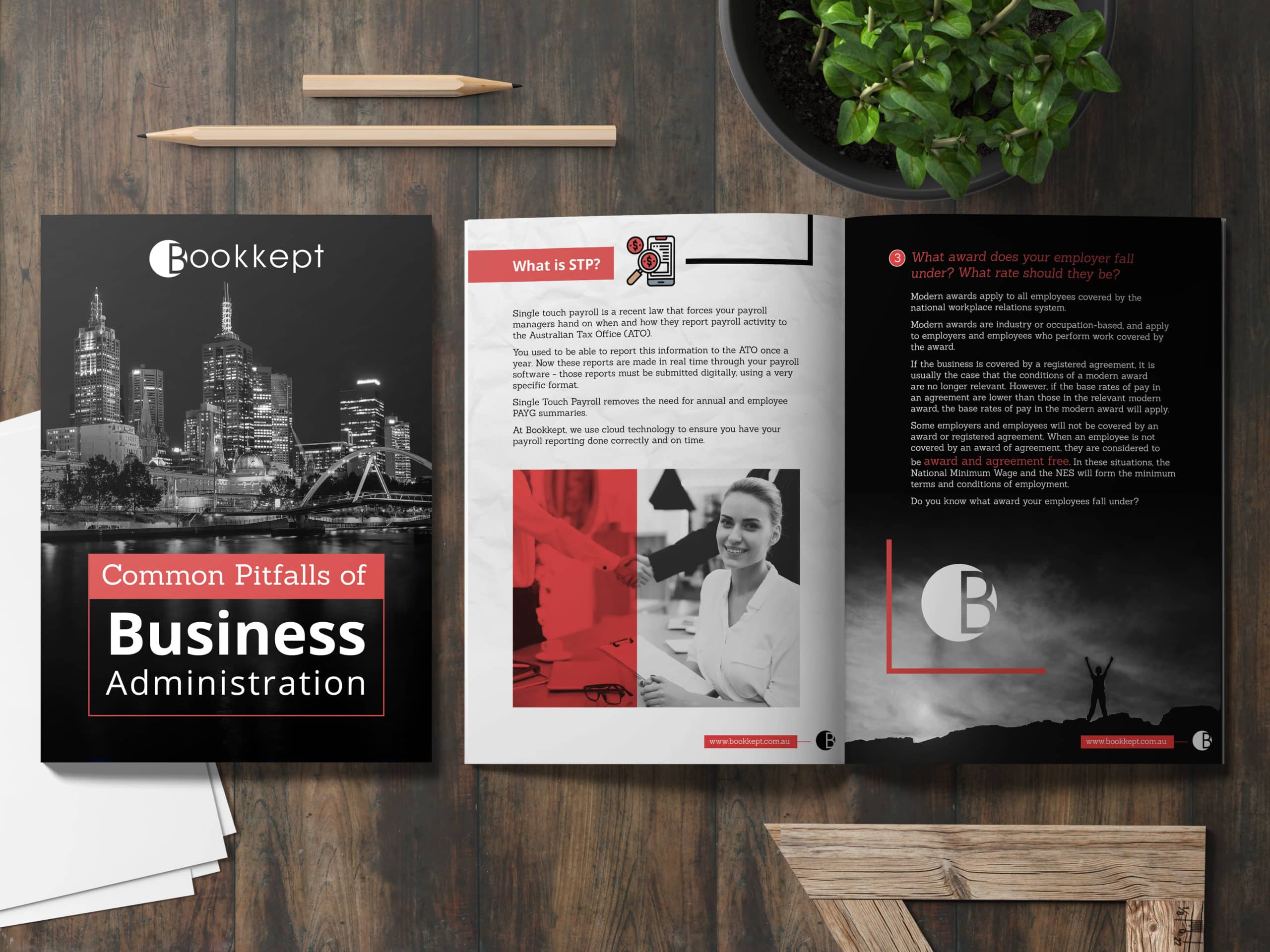
How to choose the right bookkeeper?
A good bookkeeper is essential for every business’s long-term success; consequently, finding the appropriate bookkeeper is equally important for your company’s growth.
When looking for a new bookkeeper, there are many factors to consider, and there is no magic formula for selecting a bookkeeper (or any other employee). However, if you want your bookkeeper to be a valuable asset to your company, there are a few basic qualities that they should possess.
You must deal with numbers as soon as you start a business. Every firm, no matter how tiny, is required to maintain track of all transactions.
This includes sales, expenses, payroll payments, and any other financial transactions in and out of your company.
Although you can do it yourself, most business owners aren’t schooled in bookkeeping. As a result, firms frequently outsource this routine task.
We’ll discuss why employing a bookkeeper is a good idea or perhaps a necessary aspect of running a business in this tutorial. Then we’ll discuss how to get the best bookkeeper for your company.
If you require help with your bookkeeping, you can give us a call on (03) 8568 3606 or email us on [email protected].
A professional bookkeeper can be invaluable when it comes to balancing your daily spending, revenues, and invoice management, whether you’re just starting your firm or fine-tuning your financial tactics.
By delegating these tasks to a professional, you may reduce your chance of error and free up time for other activities.
But where do you look for a bookkeeper, and how do you know which one to hire? Continue reading to see how successful companies choose the best bookkeeping services.
Things to Keep in Mind
Trust & Security
Bookkeepers have access to a company’s most sensitive personal and confidential information. Because bookkeepers are in charge of a company’s crucial financial records, they’re frequently a key figure in ensuring that invoicing, payroll, and taxes are all handled properly.
You need to be able to put your complete trust in your bookkeeper. Ask a bookkeeper (or a bookkeeping service) all the questions you can think of about their procedures and processes for protecting your financial information before hiring them. You should look for a new bookkeeper if you don’t trust someone to be truthful and transparent 100 per cent of the time.
Certification
Always hire a bookkeeper who is totally licensed and certified. Some firms are tempted to engage unlicensed individuals to keep their records in order to save money. Hiring unlicensed bookkeepers can be a costly mistake because, while they may save you money in the short term, they are more likely to make mistakes and cost you money in the long run.
Excellent Communicator
A bookkeeper is someone you hire to keep track of your finances; as a result, you’ll need to communicate with them on a frequent basis. Some bookkeepers may be fantastic at keeping track of the statistics, but if they neglect to interact with you, they can be detrimental to your company’s general health.
Being a good listener is an important part of being a good communicator, so your bookkeeper should be attentive and interested when you’re talking about the minutiae of your business. Finally, you and your bookkeeper should have a positive working connection that permits information to flow freely and accurately between you.
Organised
A bookkeeper is responsible for keeping financial records, and they must have a file system that represents the importance of their work. Most financial queries you may have for your bookkeeper should receive a fast response. If a bookkeeper is well organized, fundamental questions about the company’s finances and expenditures should never be a problem.
A bookkeeper who appears disorganized or who files crucial corporate documents inconsistently should not be trusted with the financial records of an entire organization.
Make sure your company hires a bookkeeper who has a clear and concise procedure for keeping track of paperwork when hiring a new employee. Remember that paperwork stored away now may need to be reviewed in 5 or even ten years.
Shares Your Vision
The majority of people have the misconception that a book-keeper is someone who is consumed by the particulars, too distracted to look up from the various papers and calculators they are working on, and much too preoccupied to bother about the larger picture of running a business.
Although it is true that a book-keeper should have an excellent attention to detail that enables them to keep track of a large number of minute data, this generalisation should not accurately reflect the profession. On the other hand, a book-keeper should be knowledgeable with your firm and share your wider vision for the kind of business you are seeking to develop.
Because bookkeepers play such a crucial role in the day-to-day operations of the company’s finances, they are also members of the team who are required to be aware of the organization’s overarching objectives.
Making Internal Hires

While hiring a staff to handle bookkeeping may appear to be a good approach to preserve control of your funds and the people in charge of them, this method frequently fails to deliver. Managing bookkeeping internally can be a formula for disaster for organizations that lack expertise in bookkeeping techniques, accounting software, or financial analysis.
In addition, the internal bookkeeping staff may be exposed to a variety of information security risks, fraud, or even fundamental errors or inaccuracies in the company’s financial entries in a number of different scenarios.
If you have an internal book-keeper, you will need to perform a significant amount of oversight, which may include repurposing office managers or mismanaging workers.
Employing Part-Time or Freelancer Bookkeepers for Bookkeeping Activities
What kinds of educational backgrounds and professional experiences do freelancers typically have? The response varies substantially from one employee to the next in this regard. You will want to be certain that your book-keeper possesses the necessary skills, a stellar track record, and the suitable level of professional education in the field.
Certification, licensure, and insurance are all things that should be looked into. If a freelancer makes a mistake while working for your company and you don’t have liability insurance, you’ll be on the hook. Furthermore, if your freelancer works from a remote location, such as a home office, you’ll need to discover a strategy to provide appropriate control to prevent account mismanagement and catastrophic errors.
You can find qualified freelancers online, but it will take some time and effort on your part to find the right one for your business. Your book-keeper should be able to bring your records into balance and provide guidance on both existing problems and potential ones. In order for them to be effective, they will need to make use of resources that are compatible with the software and payment systems that you already have in place.
Hiring CPAs
It is sometimes a waste of money to hire a certified public accountant (CPA) to perform the function of a book-keeper. In addition, the majority of accountants dislike their line of work. If you have financial difficulties that require further understanding, such as filing taxes or managing investment money, you might want to think about getting the assistance of a certified public accountant (CPA).
CPAs interact with bookkeeping services on a regular basis, and as a result, they may be able to recommend accounting specialists to your firm who can perform daily accounting tasks at a cost that is substantially lower than what you would pay on your own.
Engaging Expert Bookkeeping Services
Lastly, there are firms that provide bookkeeping services and are responsible for managing the daily accounts of a number of businesses. They usually engage certified public accountants (CPAs) for managerial positions so that they may provide appropriate supervision and guidance to a book-keeper who is having problems.
These services typically have access to a wider choice of tools since they work with a diverse clientele, and because they employ a large number of people, they have a better chance of having the experience that your company requires because of the sheer number of individuals they employ. Leveraging one’s connections with respected members of one’s sector as well as providers of accounting technology can also be profitable for businesses.
Hire for confidence
You want someone who is confident when hiring a bookkeeper. A skilled communicator is essential in this position. You’ll get more than a bookkeeper with Maximum Business Solutions; you’ll get a useful asset to your company that contributes.
Communication skills are important in any employment, but they are especially important for bookkeepers, who play a significant role in your company’s finances.
Hire for understanding
You should expect your bookkeeper to obtain a thorough understanding of your company, its present financial status, and your short- and long-term objectives.
A bookkeeper who shows little grasp of your business or how you operate shows a lack of dedication to you and your employees. Red flag!
Hire for skill
You’re probably looking for a bookkeeper as a business owner since you don’t have the time or skills to manage the task anymore. Perhaps you took the time to manage yourself when your company was small. But now that your company and crew are expanding, you just don’t have the time. Your options?
- When you can, cram it in, leaving room for errors, inaccuracies, and omissions.
- Choose a trained bookkeeper who is committed to processing your records correctly and accurately.
We shouldn’t have to tell you which option is the best! Using the services of a professional bookkeeper can make a huge difference.
Hire for growth
No business owner wants to be stuck in a rut, and excellent companies constantly strive to improve and expand.
The financial component of success requires a dependable, dedicated bookkeeper. Find a bookkeeper who is enthusiastic about your company, eager to succeed, adheres to deadlines, and provides ongoing business insight. If you’ve discovered that, you’ve hit pay dirt.
Ask questions
A good bookkeeper will ask pertinent questions. He or she will also discuss ideas with the business owner about financial-planning techniques, ways to enhance revenue, cash flow, budgeting, and a variety of other cost-cutting strategies that they might devise to improve business performance and growth. They can help grow the business while keeping costs down if they have a good understanding of the business and financial situation.
How can you tell if your bookkeeper is trustworthy? Above all, they should be constantly upskilling, training, and certified.
The Tax Practitioners Board requires bookkeepers who are registered as BAS Agents to have skills, credentials, and learnings in all areas of bookkeeping, including GST and BAS regulations. They must also have at least two years of industry experience and agree to follow a strict code of behavior. They must re-certify every three years to remain current.
3 justifications for hiring a bookkeeper
It’s possible that if you’re just getting your firm off the ground, you won’t think you need bookkeeping services. You could think that handing the numbers over to your accountant for review once a quarter or once a year is adequate for ensuring that they are accurate. But hiring a book-keeper is a smart move for a number of important reasons. I’ll give you three examples:
They will spare you some time
Unless you have a lot of experience in the industry, handling your own bookkeeping probably isn’t the best decision. The processing of payments, receipts, and charges is only a portion of the overall task. They are familiar with the process of assigning costs to particular customers.
They will collect all of the data, input it into your accounting application, and then evaluate the results. A savvy book-keeper is aware of how transactions should be handled in order to provide useful business reports. Because it requires expertise, your book-keeper will finish it much more quickly than you will be able to.
They are familiar with your industry
Bookkeepers have a deep awareness of your company’s finances because they deal with day-to-day accounts. They can help you determine out where your organisation should go by sharing this knowledge. They can inform you to any difficulties in time for you to take action. A professional book-keeper keeps track of your funds and keeps you out of trouble.
They assist control your cash flow
Accountants are important in a range of scenarios, including strategic counsel, yearly reports, and tax difficulties. They don’t see your accounts every day, though. A qualified book-keeper will monitor your accounts on a regular basis. This will aid in the management of your cash flow, which is vital for business success.
Realise what you need
Employing a book-keeper is comparable to employing anyone else. First and foremost, you must know your own requirements. Only then can you identify persons who are right for the position. Here are a few things to think about:
What kind of company do you run?

For example, the rules for bookkeeping that apply to manufacturing organisations are not the same as those that apply to service or retail businesses.
How many financial dealings do you conduct on a regular basis, be it daily, weekly, or monthly?
This will aid you in determining how much time you will need to spend keeping your books.
What accounting programme do you utilise?
It is helpful if you utilise accounting software that is available online. After that, your book-keeper will be able to communicate confidentially with you at any time.
Do you need debt collection, payroll, or credit control services to help you get paid more quickly?
There are several bookkeeping services out there that will charge you a fee in order to track down money that is owed to you by clients.
What dates are important to you?
Important dates to keep in mind are the days on which payroll is due, the deadlines for filing tax returns, and appointments with your accountant. You’ll want to make sure that your records are up to date and correct well in advance of each of these occasions.
The reporting of the performance of the business is another important date. Make sure to ask the book-keeper how frequently they check the reports to assess how well the company is performing in its operations. One such thing would be a report on profits and losses that is prompt and accurate.
Choose the right person
You should speak with as many people or businesses as possible. If required, interview them twice, and check their references and qualifications. Personality and cultural compatibility are also important considerations.
Even if they aren’t working full-time, your selected bookkeeper will communicate with you and your staff frequently. It pays to recruit someone who fits in well with your team. Hire someone who is nice, helpful, and, most importantly, interested.
Write a Better Ending
In conclusion, you should give some thought to the person you choose to be your book-keeper, and you should steer clear of employing anyone who does not possess the qualities that were presented above. Because your book-keeper will have access to all of your most important and confidential financial documents, it is essential that you select an individual who is dependable, polite, and trustworthy. Although many companies are tempted to engage non-certified bookkeepers in order to save money in the short term, it is nearly likely that hiring a fully licenced book-keeper will save you money in the long run. Last but not least, keep in mind that a book-keeper is an essential part of your company’s team. You need to find someone who is easy to communicate with and who is on the same page as you regarding the company’s long-term objectives and priorities.
Bookkeepers are responsible for bringing order to otherwise disorderly situations. They will compile all of the numerical information, receipts, bills, and other accounting data pertaining to your organisation. They then filter everything into the proper reports and accounts in your accounting programme.
They transform all of this information into data that can be used for financial analysis. Everything will be in its rightful location, thoroughly filed away, and meticulously ordered. One might make use of this to receive an instantaneous image of the health of their firm.
As your company grows, a professional bookkeeping partner will be there for you every step of the way to assist you with the financial aspects of running the business. Therefore, it is to your advantage to take your time and find the right person to hire.
In addition to merely assuring the integrity of your financial data, using a bookkeeping firm to manage your accounting needs can help you detect potential hazards and possibilities. Their assistance and guidance can often benefit even the smallest business owner. Unfortunately, not all solutions are profitable once implemented. Take the time to locate and hire the best bookkeeping partners to protect your business.
